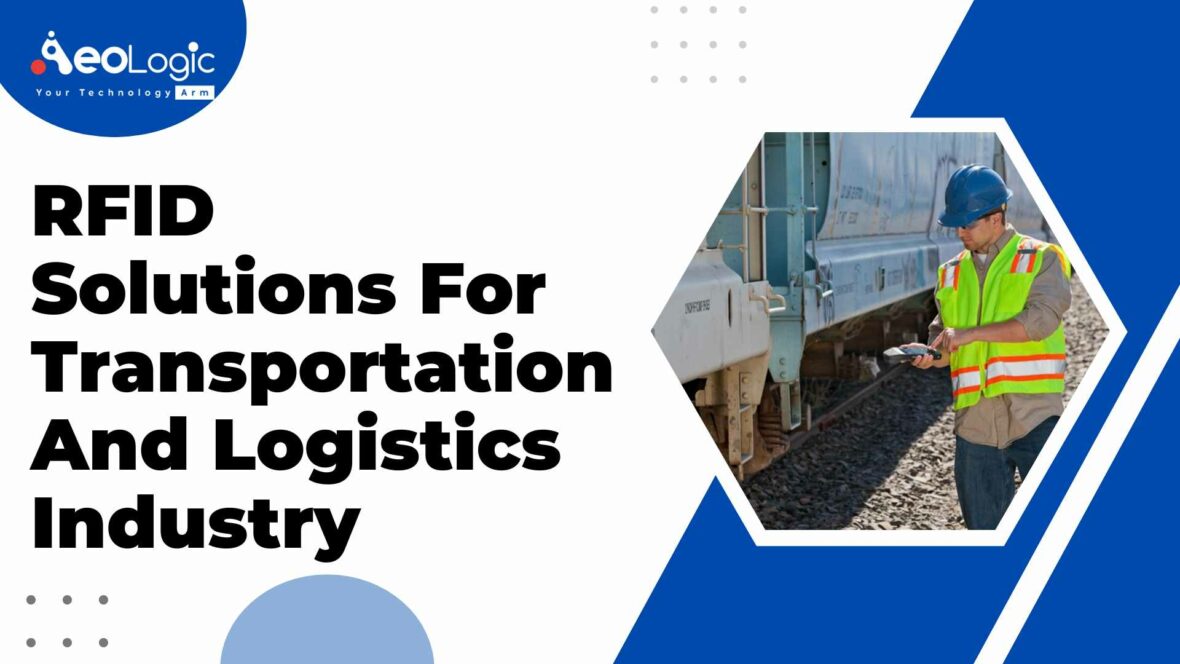RFID (Radio Frequency Identification) technology is a welcome revolution in the world of logistics. RFID solutions for transportation and logistics are enabling many transportation and logistics companies for accomplishing near-perfect shipping, receiving, and order accuracy rates. Along with higher inventory accuracy, nearly 30% faster order processing speeds, and a 30% decrease in labor costs.
The RFID solutions for transportation and logistics are progressing each day as they are not requiring the product to be in the line of sight. The readers can read and record information up-to-date. Therefore, this is increasing the visibility of goods. Hence, it is enhancing the efficiency of the entire process. Thus, businesses are having all control over the movement of goods.
RFID is bringing in the most sought ‘end-to-end product visibility into the world of transportation and logistics. This real-time updated information is maximizing efficiency, reducing operational costs as well as improving customer satisfaction. As the vendors get more cost-to-volume benefits, the penetration of such technologies will boost.
Also read: Benefits of RFID Asset Tracking in the Supply Chain
RFID Technology in Transport
One common reason you’ll find businesses implementing RFID is to make labor-intensive tasks automated. Therefore, saving them money on wages and staffing requirements. Whilst also devising all of their practices more streamlined. It’s also a very popular way for achieving a better insight into the status of tasks. Now we have a better understanding of RFID solutions for transportation and logistics. Let’s take a closer look at the application of RFID that can be observed right now in the field!
Automated Ticketing for Public Transport
This clever implementation of RFID is not only great for speeding up the process of issuing tickets for the transport company themselves. However, it is also benefiting their consumers. How so? Since RFID technology is not requiring a line of sight to be used and so it is hugely versatile and quick to use. This is helping to reduce queuing times and human errors which in turn will maximize customer satisfaction!
RFID tags on vehicles
This approach is often used to track when vehicles arrive back at the depot. This is accurately keeping a record of the available vehicles at any given time! Other applications involve vehicle identification when arriving at a site. These two ways of implementing RFID is greatly contributing to faster business processes, planning, and in turn the overall success of the whole transportation company.
Shipping Containment Tracking
Perhaps one of the most general uses of RFID technology is tracking shipping containers as they move along the shipping process. A container can be scanned at the port and then again once it arrives at the right destination, providing a live feed of where the container is up to in its journey. Hence, this is giving you more control and a more detailed view of your assets.
RFID in Logistics
RFID is providing logistics managers with multiple ways to track and manage products and assets in the supply chain. Also, RFID tags and scanners are potentially improving product and materials handling inside and outside the warehouse environment, with applications ranging from inventory management to automation.
Improving product tracking through WMS integration
Warehouse management systems (WMSes) is helping in tracking the receipt, storage, and distribution of goods. A WMS stores data which are relevant to inventory levels, product locations, reordering details, and other information that users may require for the logistics.
Improving product handling efficiency
RFID tags are also helping in route planning and goods handling within and between supply chain locations.
Warehouse employees are putting RFID tags on logistics assets like trucks, containers, forklifts, and other material-handling equipment. So, workers know the location of equipment at all times and can rapidly retrieve it to transport products.
Increasing inventory counting speed
RFID tags and scanners are helping in speeding up inventory counting and reconciliation. Because warehouse employees can then be using handheld RFID devices to easily and accurately scan RFID tags. Some scanners can count tags one-by-one for every individual item. While others can near-simultaneously count all the tags in a specific location.
Also read: How Did Foam Company Improve Warehouse Efficiency With RFID
Faster and more frequent inventory counting can give effect in more accurate inventory management as well.
Conclusion
We’ve briefly discussed applications of RFID solutions for transportation and logistics and the benefits that they can offer. However, there are so many more! Upgrading your existing processes will be beneficial not only for moving up your existing business processes but also for your staff and creating your business more accessible for consumers!
If you would like any further help exploring using RFID in your company, contact us today and a member of our team will be happy to help.
FAQs
How RFID can be useful in solving its delivery problem?
RFID scanners are helping companies easily monitor how goods move through their warehouses. Moreover, inventory management is becoming significantly more efficient since companies are receiving real-time information about what’s in the warehouse, what’s on its way to the warehouse, and what’s been sent to customers.
What is the future of RFID solutions in transportation and logistics?
Passive sensors for temperature, moisture, pressure, vibration, and several other factors will be combined with RFID to offer even more intelligence from the edge of the enterprise. Therefore, with advanced IoT applications, it may be possible to incorporate RFID sensors into your industrial control systems.





